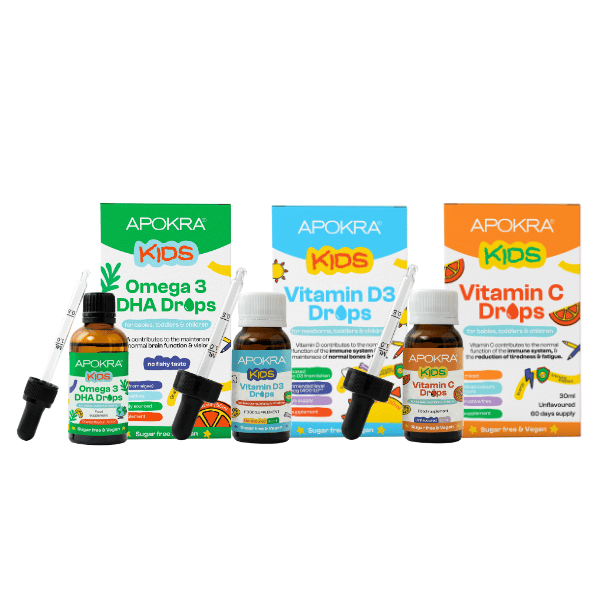Algae Oil vs Fish Oil: Benefits of Algae

Algae oil presents now a more ethical and sustainable plant-based source of omega 3. Even though fish oil is the longest standing supplemental source of omega 3, it has its limitations. This article will discuss in detail the benefits of Algae over fish oil.
What is Algae?
Algae goes far beyond the pond in your back garden. It is essential to many marine ecosystems and forms the main food source for fish and marine life. Without algae, marine ecosystems would collapse.
Algae is classed as a simple, non-flowering and typically aquatic, plant. It has been known to be found on rocks in mountainous regions and in ice, but that is rarer. Algae contain chlorophyll and require UV light plus carbon dioxide to survive and prosper. Examples of marine algae are seaweed and kelp.
Algae was used by the Aztecs thousands of years ago for its nutritional properties and benefits. We can now harness this food source and its health benefits in the form of algae oil. Algae oil provides a concentrated form of omega 3 DHA and EPA in a liquid. Just a spoonful can provide your dietary needs of omega 3.
What is Algae Oil?
Algae oil is typically made from marine algae and is sustainably farmed and then purified. This process creates a supplemental form of marine algae named algae oil. Algae oil contains omega 3 in the form of DHA and EPA and has many health benefits. Algae oil is a superfood and has the added benefits of being a great source of omega 3 for vegans and vegetarians. It also doesn’t have the fishy taste and indigestion side effects that fish oil has. Plant based sources of omega 3 are limited. The oil from algae can be utilised as a supplemental form of omega 3.
Which nutrients are in algae oil?
Algae oil provides DHA and EPA which are the two best types of omega 3. Omega 3 is a healthy type of polyunsaturated fat that is found in fish and plants. The omega 3 source found in algae oil is comparable to what fish oil provides in terms of DHA and EPA content.
How much Omega-3 is in Algae?
The total amount of omega 3 (DHA plus EPA) in algae oil vary. Typically, algae can provide anything from 200mg to 700mg of omega 3.
Algae oil vs. fish oil
Algae oil provides a source of omega 3 that is suitable for vegans and vegetarians. This is of benefit as vegan and vegetarian diets generally must rely on an omega 3 source from plants that only provide omega 3 through ALA e.g., flaxseed oil. ALA is an inferior source of omega 3 as it must be broken down by the body into the beneficial forms DHA and EPA. For this reason, vegans and vegetarians are more susceptible to a dietary deficiency of omega 3. Supplemental algae oil can help solve this issue, as it provides a potent source of DHA and EPA.
On top of providing a comparable form of omega 3 to fish oil, algae oil has the added benefit of being more ethical and sustainable. People currently using a fish oil supplement might consider switching to algae oil for ethical reasons. They are not losing any health benefits due to algae providing the same type of omega 3 as fish oil.
One of the drawbacks of cod liver oil is that it contains vitamin A and this should not be taken during pregnancy due to risk to the foetus. Fish and fish oil also has a risk of containing high levels of heavy metals like mercury. It is also recommended during pregnancy and when breastfeeding certain types of fish and fish oils should be avoided due to the negative effects of heavy metals. It is recommended that children avoid certain types of fish and fish oils due to the potential heavy metal content. Algae oil grown under the right conditions and purified, does not contain heavy metals and therefore is a safer choice for pregnancy, breastfeeding and children. Algae oil can also be used when someone has an allergy to fish or shellfish.
Algae oil doesn’t have the fishy taste that fish oil supplements have making it a great choice for anyone but mainly kids that are fussy with taste!
Algae Oil: Dosage
The recommended daily dose of DHA sourced from Algae oil is 250mg for adults and children over 2 years, according to the European Food Safety Authority (EFSA). For children under 2 years the EFSA recommends 100mg daily. These daily amounts have been established by the EFSA as the amount required to obtain its health benefits.
In pregnancy and breastfeeding it is recommended that 200mg DHA plus and additional 250mg of DHA is obtained daily. This can be obtained through diet and supplemented with an omega 3 algae oil supplement that provides DHA.
Health benefits of oil from algae
Many Omega 3 benefits are gained from adding algae into your diet. Algae oil contains a source of omega 3 which contains DHA and EPA. A daily intake of 250mg for adults of DHA and EPA has the benefit of contributing to the maintenance of normal brain, heart and eye function.
Algae oil supplements
There are a range of algae oil supplements including capsules and liquid forms. Apokra provides an algae oil supplement in liquid form for adults and kids. The advantages are it has fewer unnecessary ingredients compared to algal capsules and it doesn’t contain carrageenan, like capsules do, which has been shown to be harmful to the body. It has the added benefit of being easily mixed with food or shakes.








Comments
Leave a comment
Your Email Address Will Not Be Published. Required Fields Are Marked *